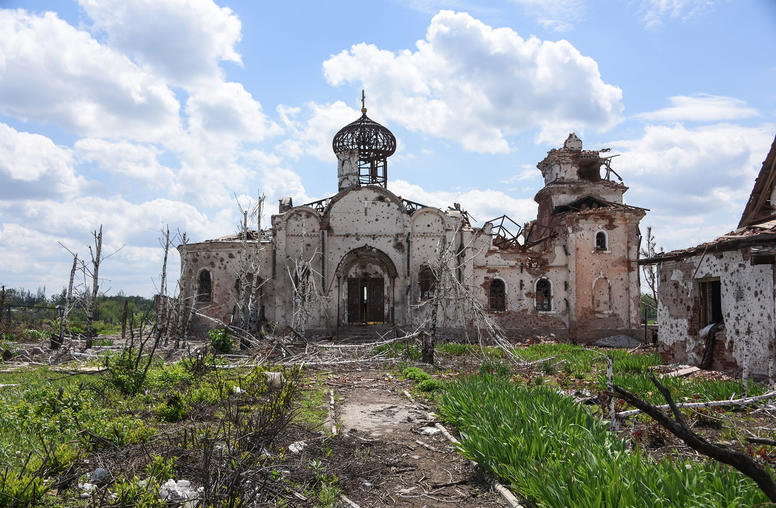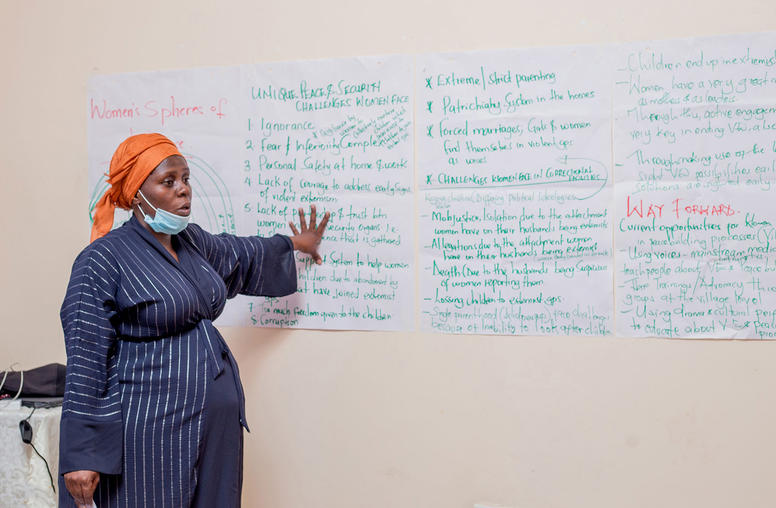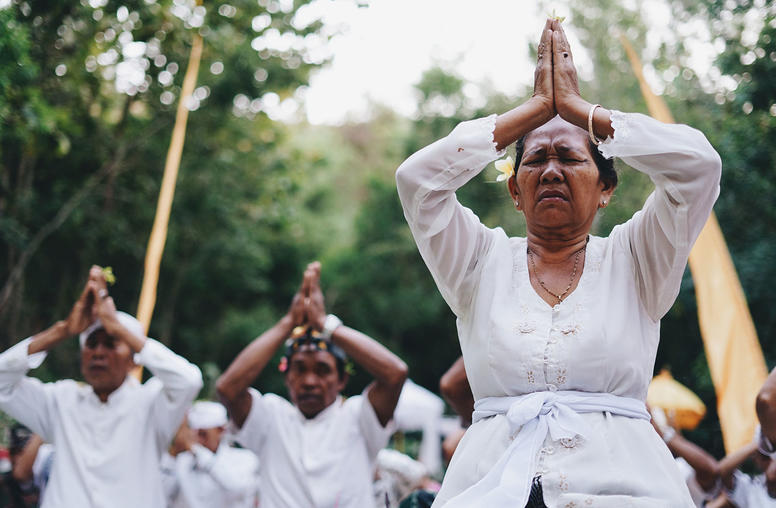 Religion
Religion
Given religion’s influence on conflict dynamics around the world, it is critical that practitioners and policymakers understand and partner with religious leaders and people of faith to build peace. For more than 25 years, the U.S. Institute of Peace has worked on the role of religion in violence and peace, advancing cutting-edge research and policy, and developing effective strategies to engage religious actors, institutions and ideas across traditions in support of peace. From enhancing the peacemaking capacities of individuals and faith-based organizations to fostering meaningful dialogue within and across faiths, USIP works with local partners to promote inclusive religious peacebuilding.
Learn more in USIP’s fact sheet on Religious Engagement in Peacebuilding.
Featured Publications

As Russia Builds Influence in Africa, its Church Takes a Role
Vladimir Putin’s campaign to make the world safe for violent authoritarianism visibly exploits conflicts and bolsters military rule in Africa with mercenary armies, internet-borne disinformation and weaponized corruption. A less recognized Russian effort to build influence in Africa is an expansion across the continent of the Russian Orthodox Church. As the Russian church’s overt support for Putin’s war on Ukraine has corroded its influence in the traditionally Orthodox Christian world, the Moscow Patriarchate is opening parishes and hiring priests away from the established African church.

Ugandans Wield Faith and Youth Against Climate-Fueled Violence
At age five, Muhsin Kaduyu began following his father, a respected imam in southern Uganda, on missions of peace — constant meetings, mediations, consolations and prayers among Muslims and Christians in their town and surrounding farmlands. So years later, Kaduyu felt sickened when Islamist suicide bombers killed 74 soccer fans in a crowd near his university, deforming and defaming his faith. That bombing, and an anti-Muslim backlash, ignited a life’s mission that has made Kaduyu a prominent peacebuilder among millions of Ugandans who struggle for survival, prosperity and peace amid communal conflicts, violent extremism and growing climate disaster.

What We Know — and Don’t Know — About Religion and Nonviolent Action
Kenya captured the world’s attention last month as thousands of youth took to the street to protest the government’s controversial proposed tax hikes. As these demonstrations reached a boiling point in late June, the predominately Gen-Z activists received support from a somewhat unexpected ally: faith leaders.
Current Projects

Religion and Conflict Country Profiles
USIP’s Religion, Peace and Conflict Country Profiles (RPACCs) are concise analytic overviews of the religious landscape in countries at risk of, currently experiencing or recovering from violent conflict. RPACCs are intended to be used primarily by policymakers and practitioners looking to develop rapid familiarity with the nature and status of religion in a given country of interest as well as to understand how religion intersects with conflict and peace dynamics. The RPACC series is an outgrowth of USIP’s previous work on Religious Landscape Mapping in Conflict-Affected States.

The USIP Learning Agenda
In support of the Evidence Act and as part of the U.S. national security architecture, USIP is carrying out its own learning agenda. Peacebuilding has long been viewed as too messy and complex for evidence-based approaches — but USIP’s mix of research and practice belies that assumption.

Religious Literacy and Peacebuilding
Peacebuilders and policymakers are engaged and involved with religious actors in almost every aspect of their work. Even where religion is not an explicit presence, it is a cultural undercurrent that is immutably present — and one that is often vastly underestimated by policymakers. As USIP’s three decades of experience working at the intersection of religion, peace and conflict has shown, the teachings of various religious traditions, the lived experience of those who practice them and the knowledge of how to engage with people of faith are all essential elements of effective peacebuilding.